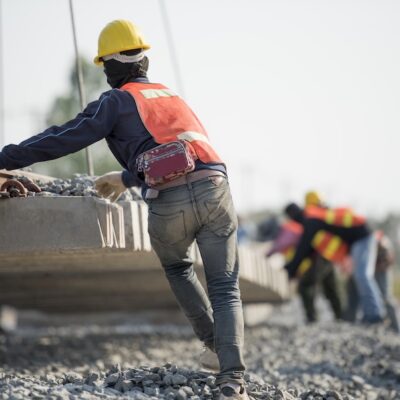Covid cavalier or cautious? The impact of office anxiety
New AUT research reveals that half of Kiwi employees are suffering at least a moderate level of anxiety about returning to the workplace. If the headlines are to be believed, […]
New AUT research reveals that half of Kiwi employees are suffering at least a moderate level of anxiety about returning to the workplace.
If the headlines are to be believed, most of us are ready to ditch the masks, return to the office, and get on with life and work in Covid times.
Indeed, Tesla boss Elon Musk recently challenged his employees to get back to the office or resign.
Other leaders might be more tempered in their call for staff to work onsite, saying they want to rebuild a workplace culture that has crumbled during the pandemic.
But new AUT research shows in New Zealand, half of Kiwi employees are suffering at least a moderate level of anxiety about returning to the workplace.
Dubbed “office anxiety”, the phenomenon describes fear of catching Covid, whether it be from sitting too close to unmasked co-workers, commuting to work on public transport, or attending meetings or functions in spaces not designed for social distancing.
AUT Business School Professor Jarrod Haar (pictured)) leads the iterative AUT Welbeing@Work study, which been tracking the New Zealand workforce since February 2020. He says the latest data dive found almost half of the 1000 Kiwi workers surveyed are at least moderately worried about returning to, and working in, the office.
The study showed office anxiety is felt equally by men and women, managers, and employees. No ethnicity differences were found. Age was the only notable point of difference, with older employees (56+) reporting significantly lower office anxiety, while those 55 and younger all reported significantly higher levels of office anxiety.
Not surprisingly, says Professor Haar, office anxiety can create tension between the so-called Covid Cautious and the Covid Cavalier – a tension that has the potential to undermine any attempts to rebuild workplace culture and team spirit.
But Professor Haar says the latest data also highlights a solution. For the purposes of the survey, “decent work” was defined as being a safe place to work, with the provision of good healthcare, adequate pay, time for rest, and good values.
The survey shows that employees who feel their organisations offer decent work have lower levels of office anxiety. Employees working for an employer offering decent work were more satisfied in their job, more engaged, and less likely to consider quitting.
However, while 80 percent of respondents thought their place of work provided average levels of decent work or better, only 15 percent of organisations were rated highly on decent work.
Professor Haar says the findings about office anxiety and decent work are sobering reminders that we are still living and working amid a pandemic – and that for many people, Covid fear outweighs Covid fatigue.
“Employers need to understand that half the workforce is still struggling with Covid-related anxiety. Particularly given the tight labour market and the ability of employees to find new jobs with relative ease, employers need to be patient and supportive while workers navigate through these fears.
“The evidence clearly shows that decent work is fundamental to mitigating levels of office anxiety and, therefore, helping to build a positive workplace culture.”






